As a leading consulting firm, we understand the challenges and complexities that businesses face in today’s fast-paced and constantly evolving market. We are dedicated to providing our clients with tailored solutions and expert guidance to help them achieve their goals and stay competitive. In this proposal, we will outline our approach and the specific services we can offer to help your organization reach its full potential.
Table of Contents
What is a Consulting Proposal?

A consulting proposal is a document that is presented by a consultant to a potential client, outlining the consultant’s expertise and approach, and detailing the specific services they are offering to help the client achieve their goals.
The proposal typically includes information on the consultant’s qualifications and experience, a description of the problem or opportunity the client is facing, and a plan for addressing it, including an estimated budget and timeline. The purpose of the proposal is to convince the potential client to hire the consultant and to provide a clear and detailed plan of action.
Consulting Proposal Templates
Consulting proposal templates are pre-designed documents that provide a structured format for creating persuasive and professional proposals to potential clients. These templates offer a convenient and efficient way for consultants to outline their services, demonstrate their expertise, and present a compelling case for why they are the right choice for a consulting project.
Consulting proposal templates typically include sections that address important aspects such as the client’s needs and objectives, the consultant’s proposed solutions and methodologies, project timelines, deliverables, pricing, terms and conditions, and any additional information that highlights the consultant’s qualifications and experience. They may also incorporate sections for capturing the client’s specific requirements and customization of the proposal.
Using a consulting proposal template helps consultants present their ideas and offerings in a clear and organized manner. The template provides a structured format that streamlines the proposal creation process and ensures that all key information is properly presented and communicated.
Types of Consulting Proposals
There are several types of consulting proposals, including:
Business consulting proposal: This type of proposal is focused on helping businesses improve their operations, increase profits, and stay competitive.
IT consulting proposal: This type of proposal is focused on helping organizations improve their technology systems and infrastructure, and may include services such as network design, software development, and data management.
Management consulting proposal: This type of proposal is focused on helping organizations improve their management and leadership practices, and may include services such as strategic planning, organizational design, and change management.
Marketing consulting proposal: This type of proposal is focused on helping organizations improve their marketing and sales efforts, and may include services such as market research, advertising and promotions, and branding.
Financial consulting proposal: This type of proposal is focused on helping organizations improve their financial performance and may include services such as budgeting and forecasting, cost management, and financial analysis.
Human Resources consulting proposal: This type of proposal is focused on helping organizations improve their Human Resources management and may include services such as recruitment, Employee relations, and compliance.
Environmental consulting proposal: This type of proposal is focused on helping organizations improve their environmental performance and may include services such as environmental impact assessments, sustainability, and compliance with environmental regulations.
Supply Chain consulting proposal: This type of proposal is focused on helping organizations improve their supply chain operations and may include services such as logistics, inventory management, and procurement.
Legal consulting proposal: This type of proposal is focused on providing legal expertise and advice to organizations, and may include services such as contract review, compliance, and risk management.
Design consulting proposal: This type of proposal is focused on providing design expertise and advice to organizations, and may include services such as product design, industrial design, and user experience design.
Real Estate consulting proposal: This type of proposal is focused on providing real estate expertise and advice to organizations, and may include services such as property appraisal, investment analysis, and development consulting.
Public Relations consulting proposal: This type of proposal is focused on helping organizations improve their public image and relationship with stakeholders, and may include services such as media relations, crisis management, and reputation management.
The Importance of Consulting Proposals
There are several benefits to creating a consulting proposal, including:
Establishing credibility: A well-written proposal demonstrates the consultant’s expertise and experience, and helps to establish credibility with the potential client.
Communicating value: A proposal clearly communicates the value that the consultant will bring to the client, and helps the client understand how the consultant’s services will help them achieve their goals.
Facilitating decision-making: A proposal provides the client with all the necessary information to make an informed decision about whether to hire the consultant, and helps them understand the scope and cost of the proposed services.
Setting expectations: A proposal helps to set clear expectations for the project, including the timeline, budget, and deliverables, which can help prevent misunderstandings and conflicts later on.
Building relationships: A proposal is often the first point of contact between the consultant and client, and can help to build a strong and lasting relationship between them.
Differentiation: A well-crafted proposal can differentiate a consultant from its competitors and increase the chances of getting the project.
Negotiation tool: A proposal can serve as a negotiation tool for the consultant, allowing them to present various options and prices for the client to choose from.
Communication tool: A proposal can be used as a communication tool to keep both parties informed and aligned on the project objectives, scope, deliverables, and timelines.
How to Write a Consulting Proposal
Writing a consulting proposal can be a time-consuming and complex task, but by following a structured approach, you can ensure that your proposal is clear, compelling, and effective. Here is a step-by-step guide to writing a consulting proposal:
Step 1: Understand the client’s needs and objectives
Before you start writing your proposal, you need to have a clear understanding of the client’s needs and objectives. This will help you tailor your proposal to meet their specific requirements and demonstrate that you understand their business and the challenges they are facing. Research the client’s industry, their competitors, and their target market. Identify the problem or opportunity that the client is facing and how your services can help them address it.
Step 2: Outline the scope of the project
Once you have a clear understanding of the client’s needs, you can begin outlining the scope of the project. This should include a detailed description of the services you will provide, the deliverables you will produce, and the timeline for completing the project. Be sure to include any milestones or key dates that are relevant to the project.
Step 3: Introduce your team
Your proposal should include an introduction to your team and their qualifications and experience. This will help the client understand the level of expertise they can expect from your firm and how your team members will contribute to the project.
Step 4: Describe your approach
Your proposal should also include a description of your approach to the project. This should include a detailed explanation of how you will analyze the client’s business and the problem or opportunity they are facing, and how you will develop a plan to address it. Be sure to include any relevant case studies or examples of similar projects you have completed in the past.
Step 5: Provide a detailed budget
Your proposal should include a detailed budget for the project, including an itemized list of all costs and expenses. This will help the client understand the financial commitment they will need to make, and will give them a clear picture of the overall cost of the project.
Step 6: Include a call to action
Your proposal should end with a clear call to action, asking the client to take the next step in the process, such as scheduling a meeting or signing a contract. Be sure to include your contact information, so the client knows how to reach you.
Step 7: Review and revise
Before you send your proposal to the client, be sure to review and revise it carefully. Check for any errors or inconsistencies, and make sure that the proposal is clear, concise, and easy to understand. Ask a colleague or friend to review it as well to get a fresh perspective.
Step 8: Submit your proposal
Once your proposal is complete, submit it to the client. Be sure to follow up with the client to ensure that they received your proposal and to answer any questions they may have.
Writing a consulting proposal can be a daunting task, but by following these steps and taking the time to understand the client’s needs and objectives, you can create a proposal that is clear, compelling, and effective.
Helpful tips for writing a consulting proposal template
Here are some tips to help you write a compelling and effective consulting proposal:
Tailor your proposal to the client: Make sure your proposal is tailored to the specific client and their needs. This will show that you have done your research and understand their business and the challenges they are facing.
Be clear and concise: Keep your proposal clear and concise. Avoid using jargon or technical terms that the client may not understand. Use simple, easy-to-understand language that clearly communicates your value proposition.
Use data and examples: Use data and examples to support your proposal and demonstrate your expertise. Provide case studies or examples of similar projects you have completed in the past to show the client the results you have achieved for other clients.
Highlight your qualifications and experience: Make sure to highlight your qualifications and experience in your proposal. This will help the client understand the level of expertise they can expect from your firm and how your team members will contribute to the project.
Be realistic with your timeline and budget: Be realistic with your timeline and budget. Provide a detailed breakdown of all costs and expenses, and make sure the timeline is achievable.
Use a professional design: Use a professional design for your proposal, including a consistent layout, font and color scheme. This will help to make your proposal look polished and professional.
Proofread and edit: Be sure to proofread and edit your proposal carefully. Check for any errors or inconsistencies, and make sure the proposal is clear, concise, and easy to understand.
Follow up: Follow up with the client after submitting your proposal. This will help to keep the conversation going and increase the chances of winning the project.
Be flexible: Be willing to adapt and change your proposal based on the client’s feedback. Be open to negotiation and be prepared to offer different options and pricing.
Mention your terms of service and payment options: Include your terms of service and payment options in your proposal to avoid any confusion or misunderstandings.
FAQs
How long should a consulting proposal be?
The length of a consulting proposal can vary, but it’s important to be as clear and concise as possible. A proposal should be long enough to provide all the necessary information, but not so long that it becomes overwhelming for the client. Generally, a proposal should be between 5-15 pages.
How can I make my consulting proposal stand out?
To make your proposal stand out, you can tailor it to the specific client and their needs, use data and examples to support your proposal, highlight your qualifications and experience, use a professional design, and be willing to adapt and change your proposal based on the client’s feedback.
How often should I follow up after submitting a consulting proposal?
It’s a good idea to follow up with the client a few days after submitting your proposal. If you haven’t heard back from them, you can follow up again in a week or two. It’s important to be persistent but not pushy.
What are the common mistakes to avoid when writing a consulting proposal?
Some common mistakes to avoid when writing a consulting proposal include: failing to tailor the proposal to the client, using jargon or technical terms that the client may not understand, being unrealistic with the timeline and budget, failing to proofread and edit the proposal, and failing to include a call to action.
How can I ensure that my consulting proposal is compliant with ethical guidelines of my profession and industry?
To ensure compliance with ethical guidelines, it’s important to familiarize yourself with the codes of conduct and guidelines of your profession and industry. Additionally, you should always be transparent about your qualifications, experience and services, and avoid making false or misleading claims.

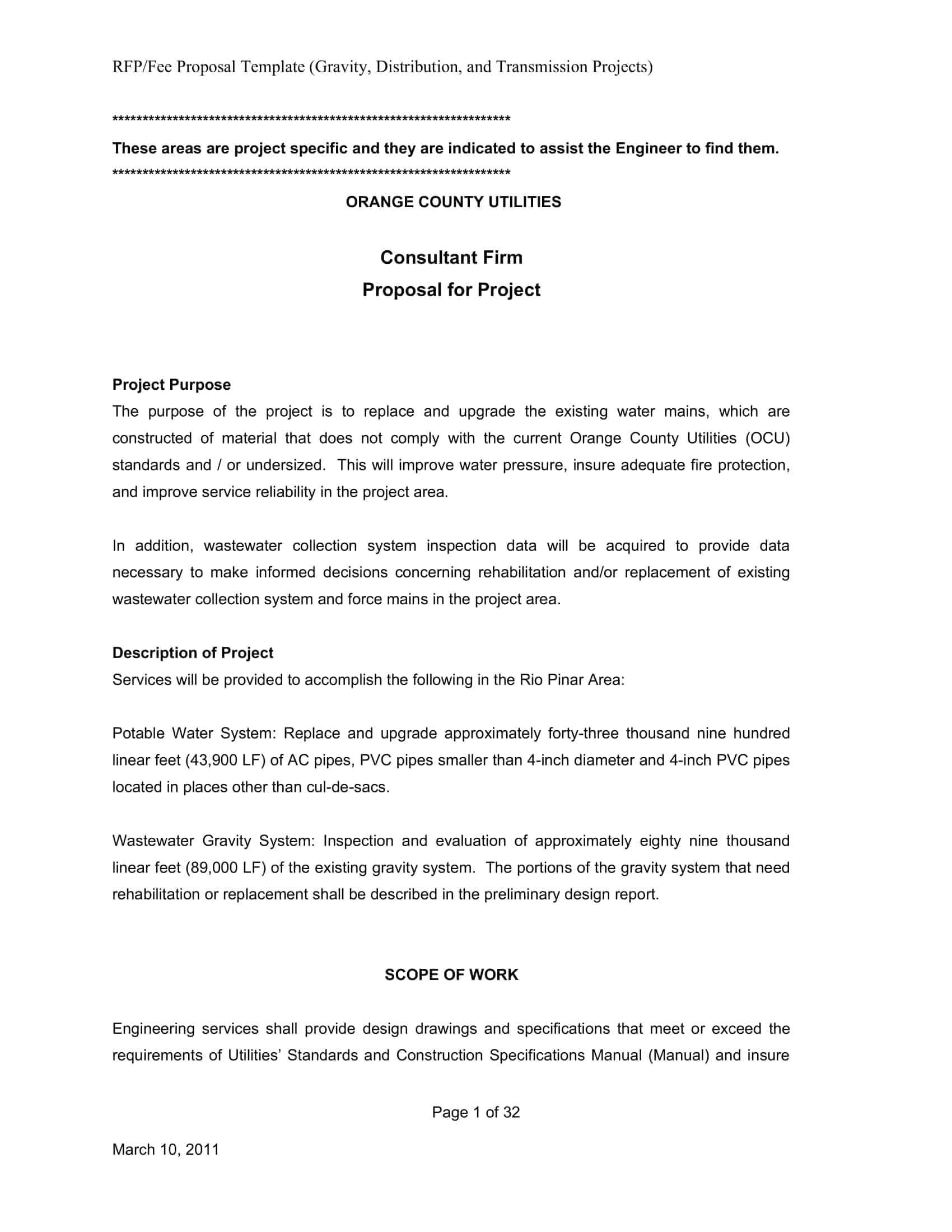


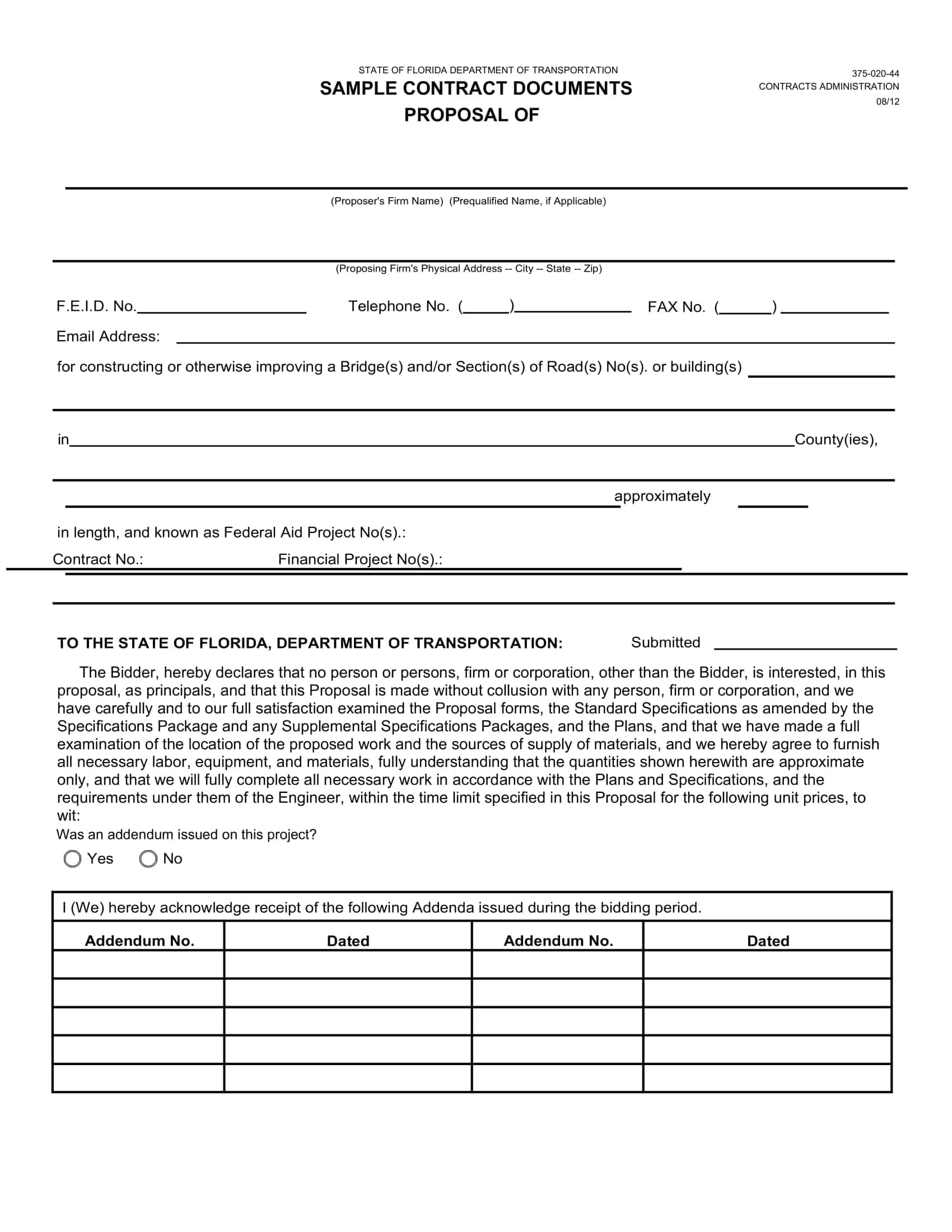
















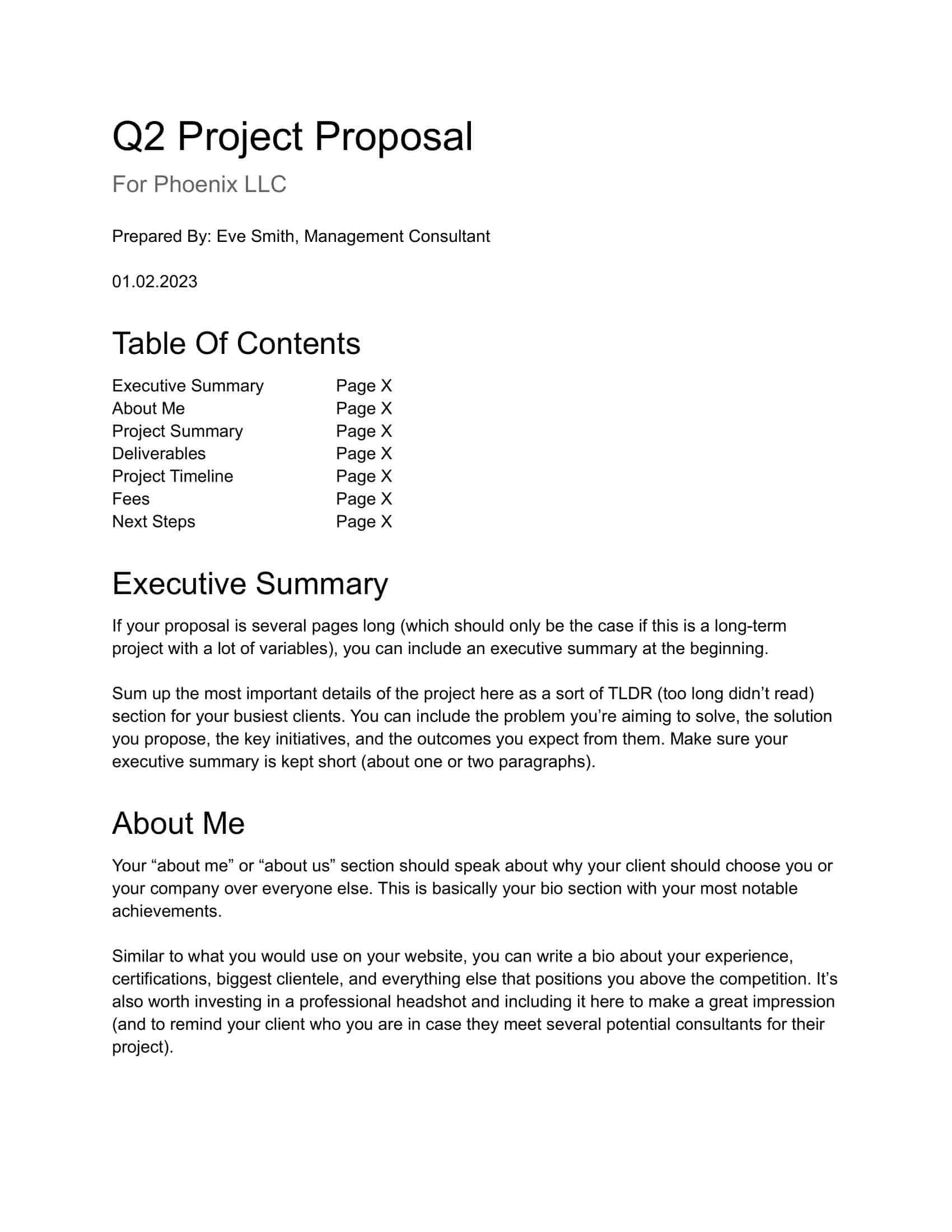
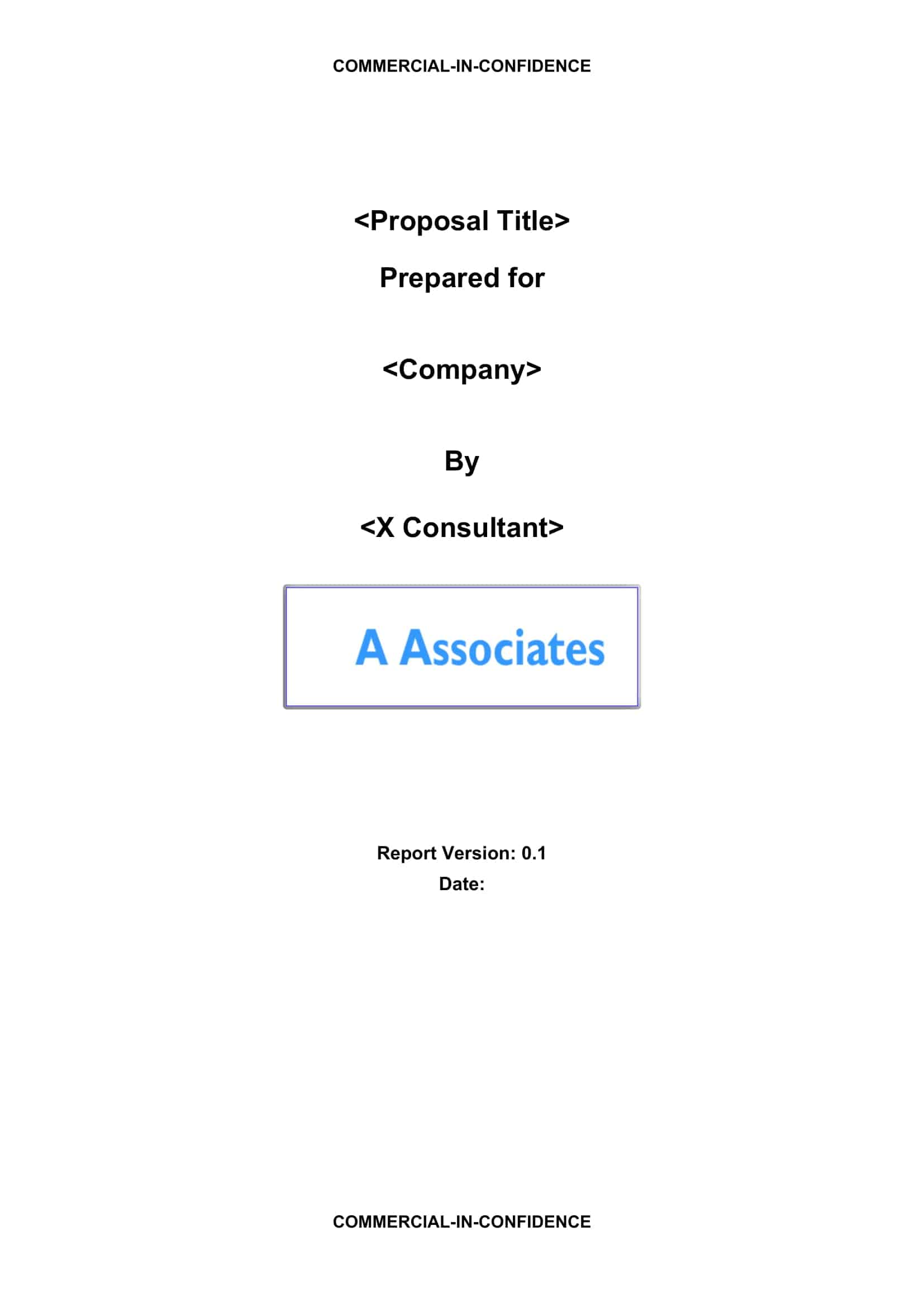



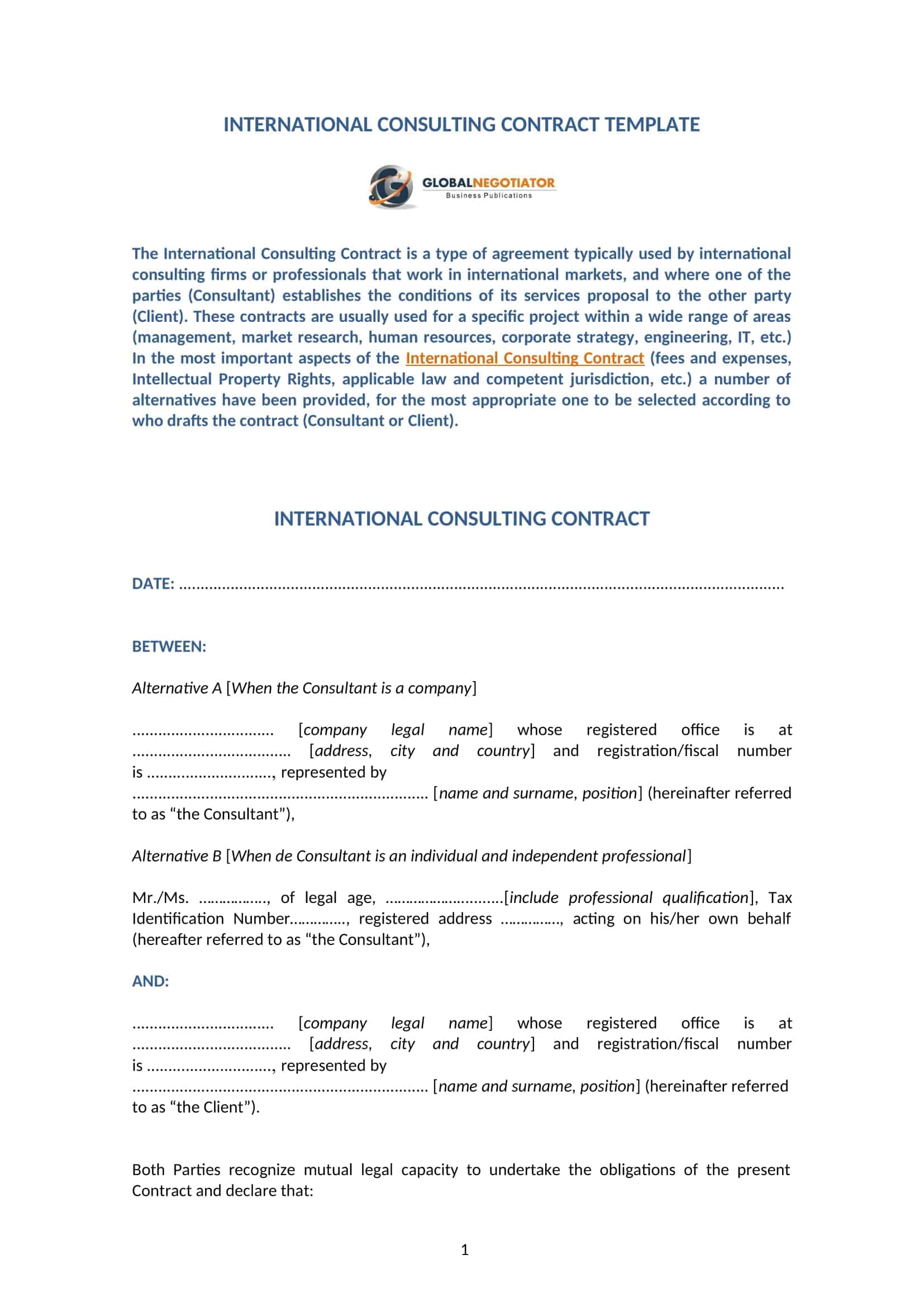
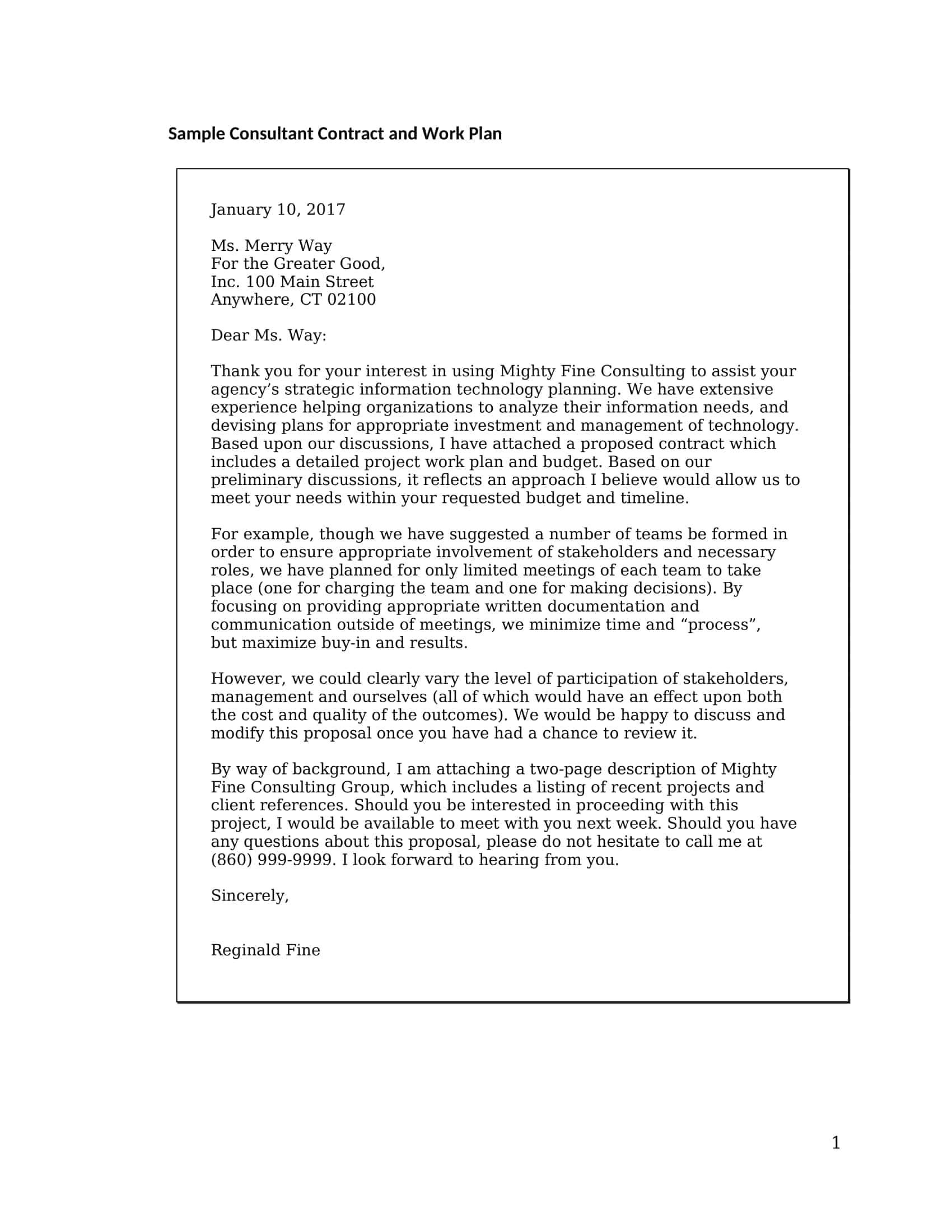

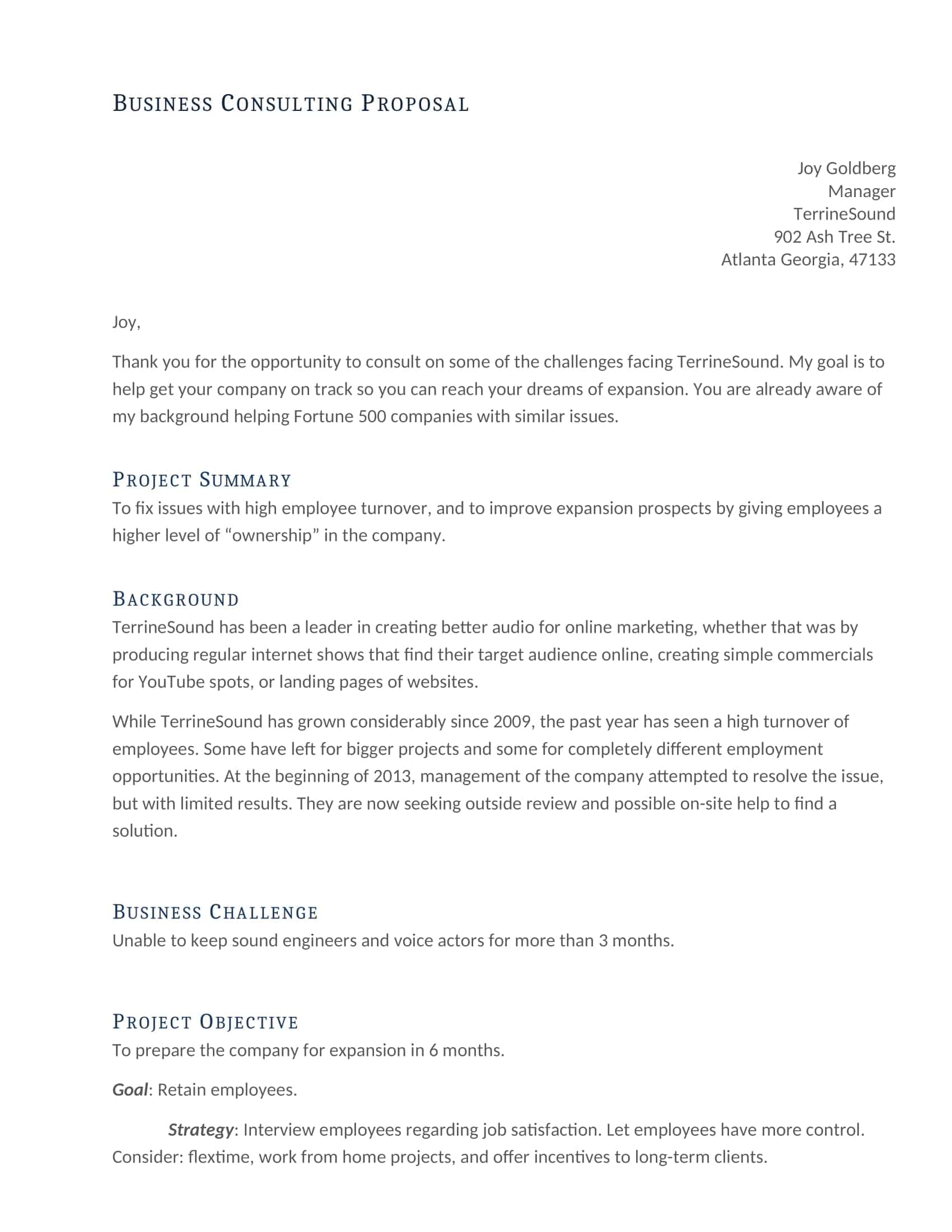
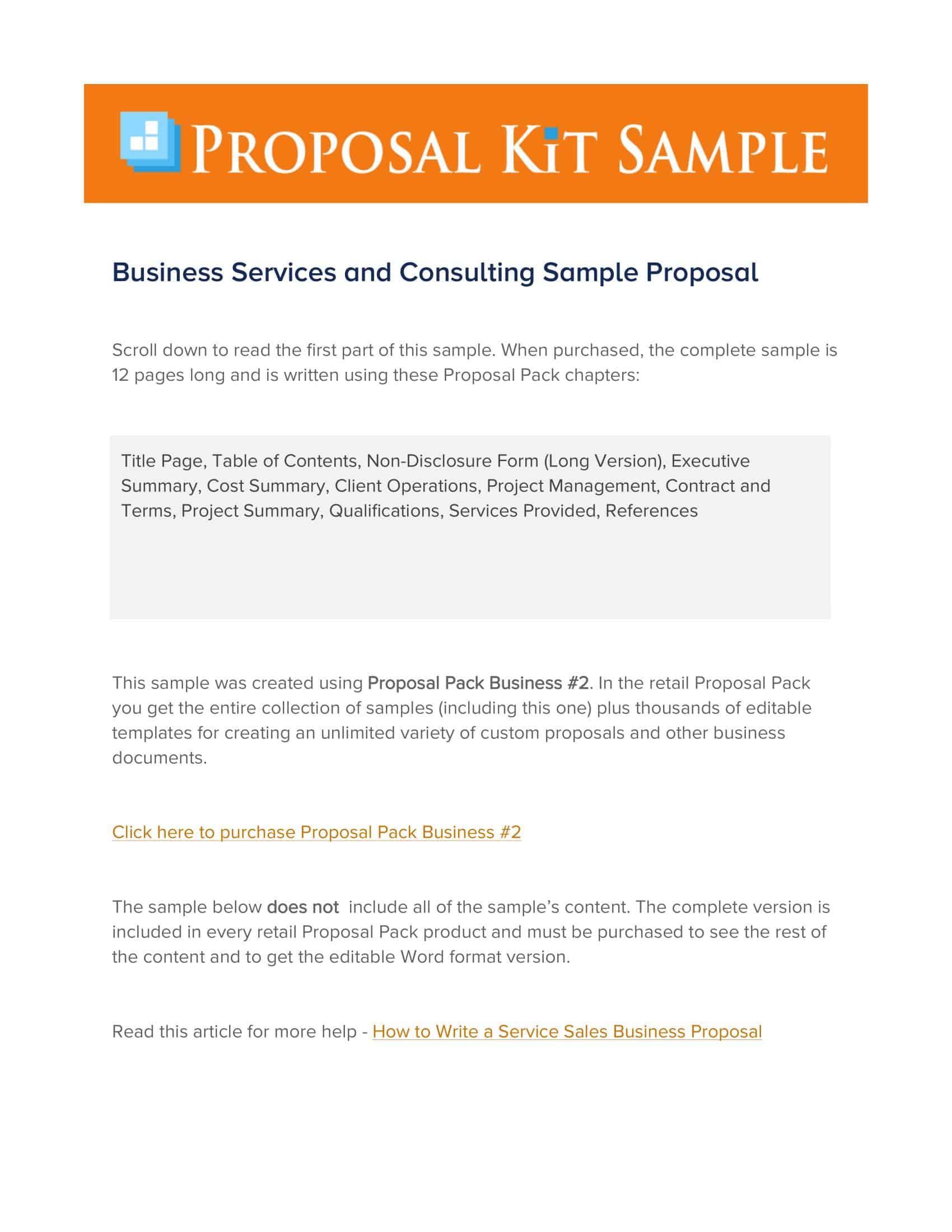
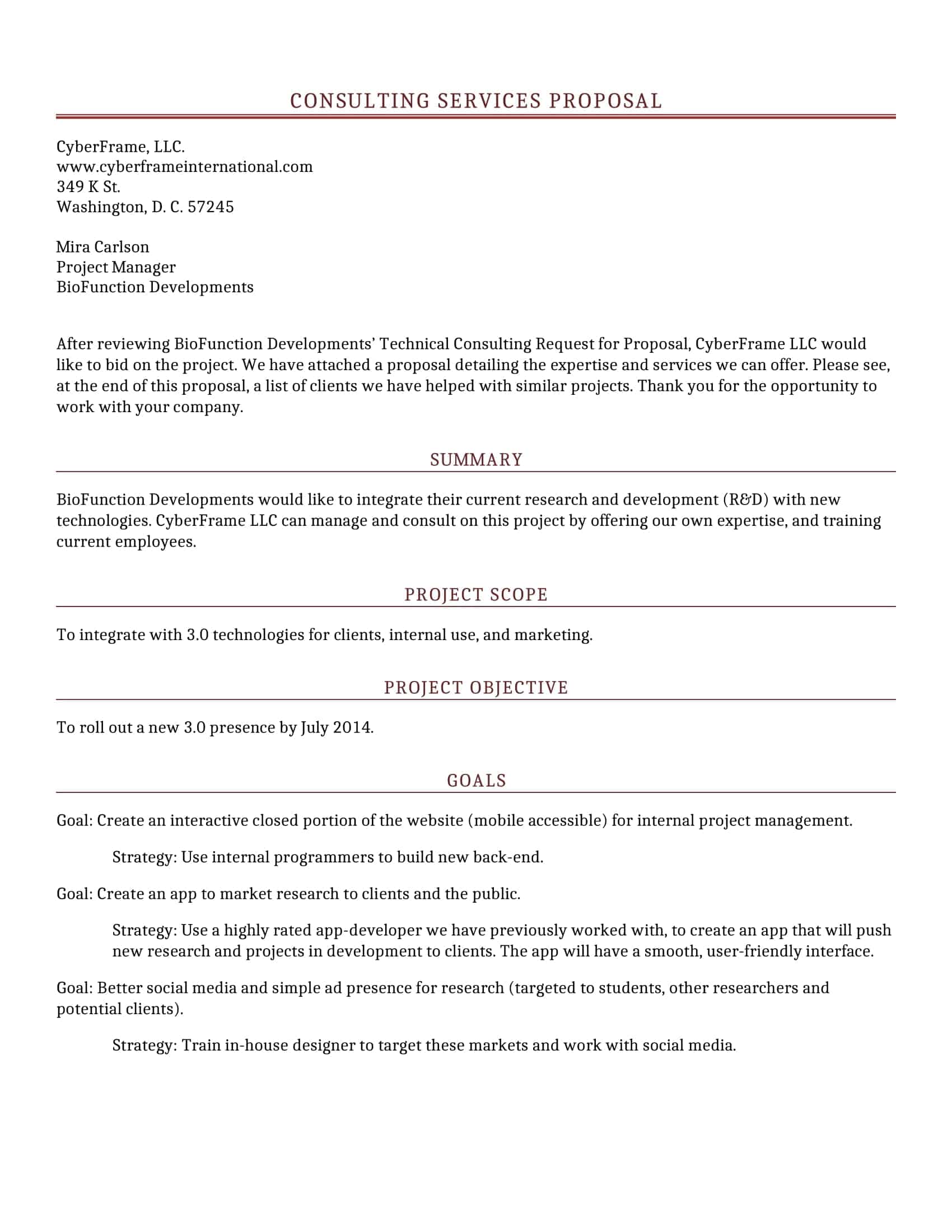
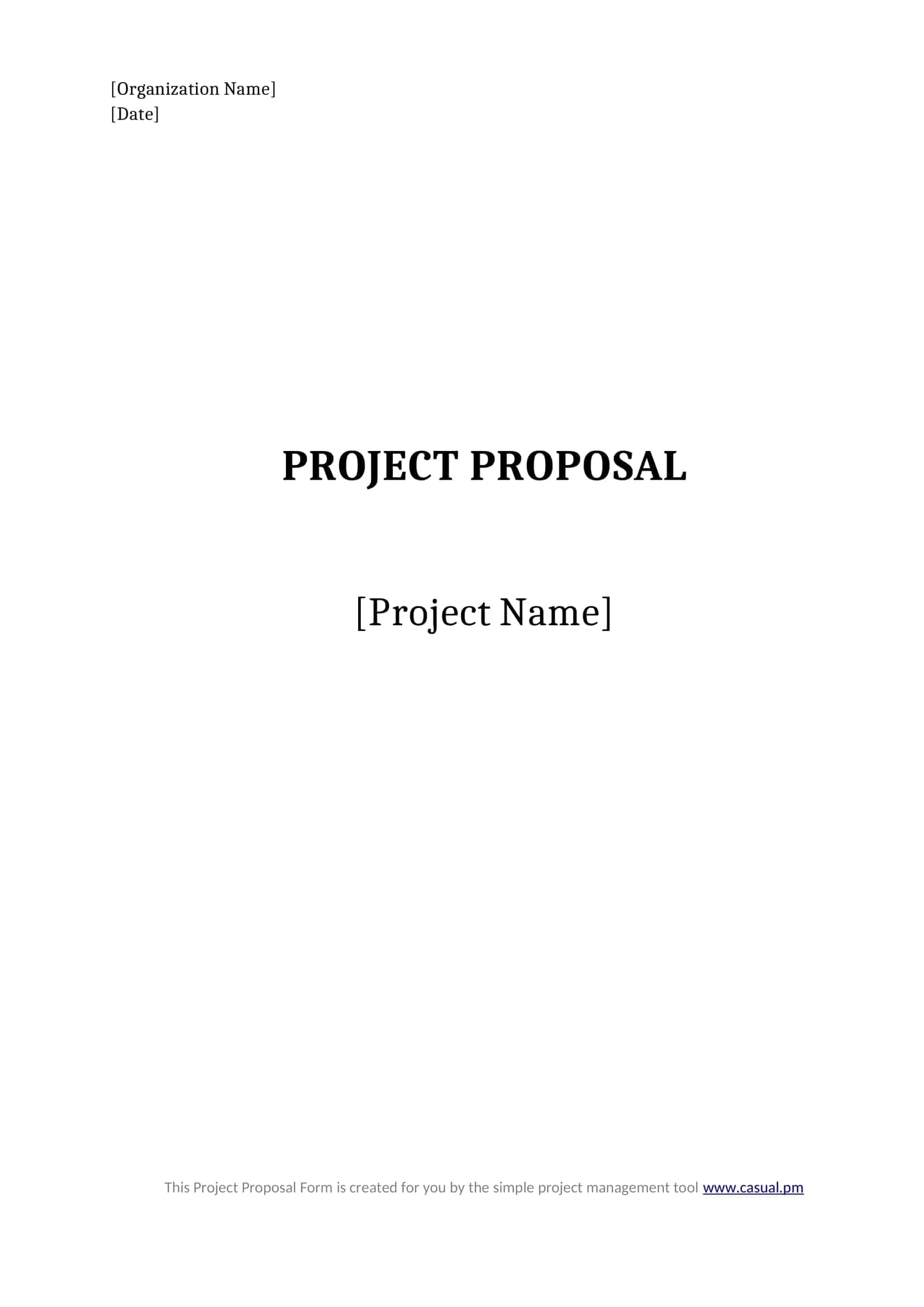


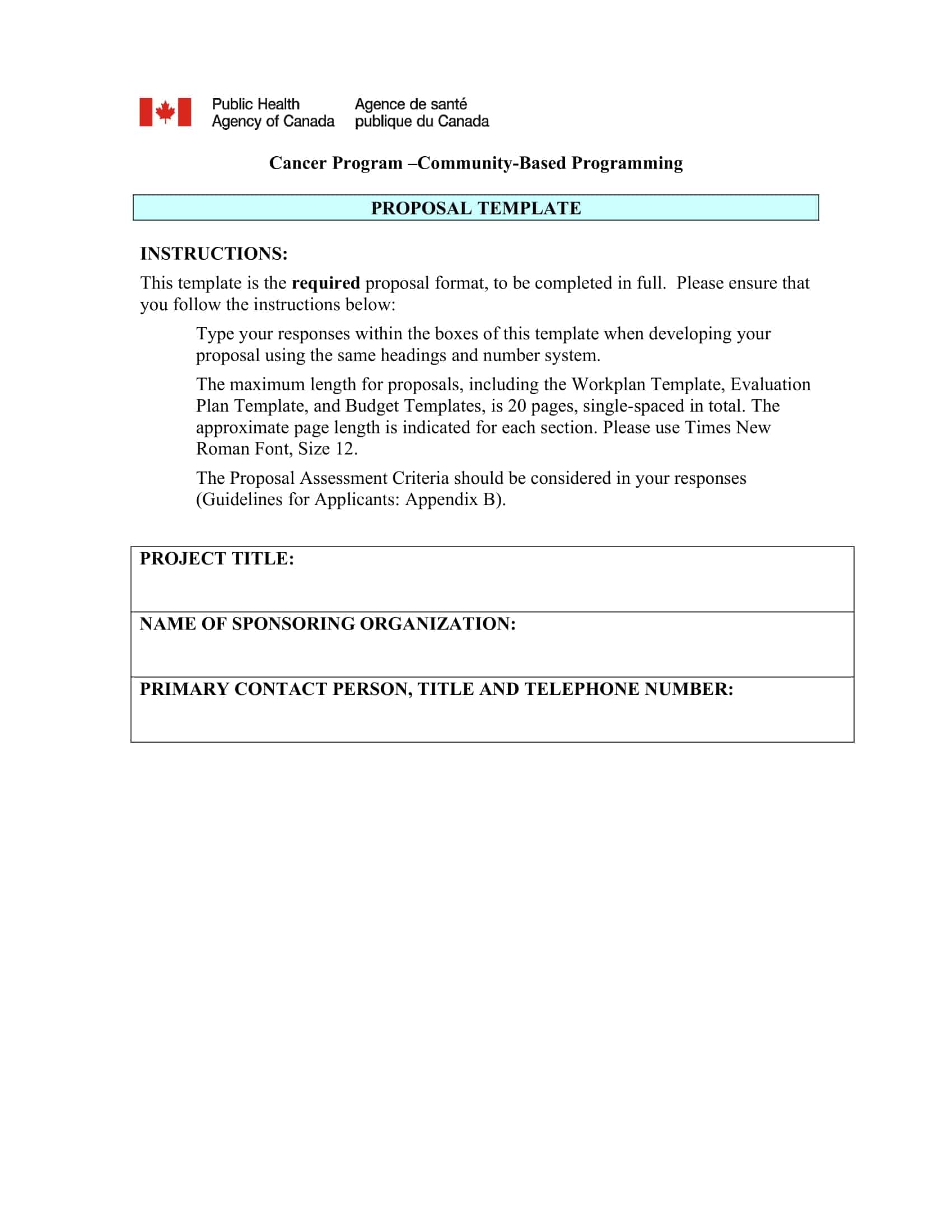
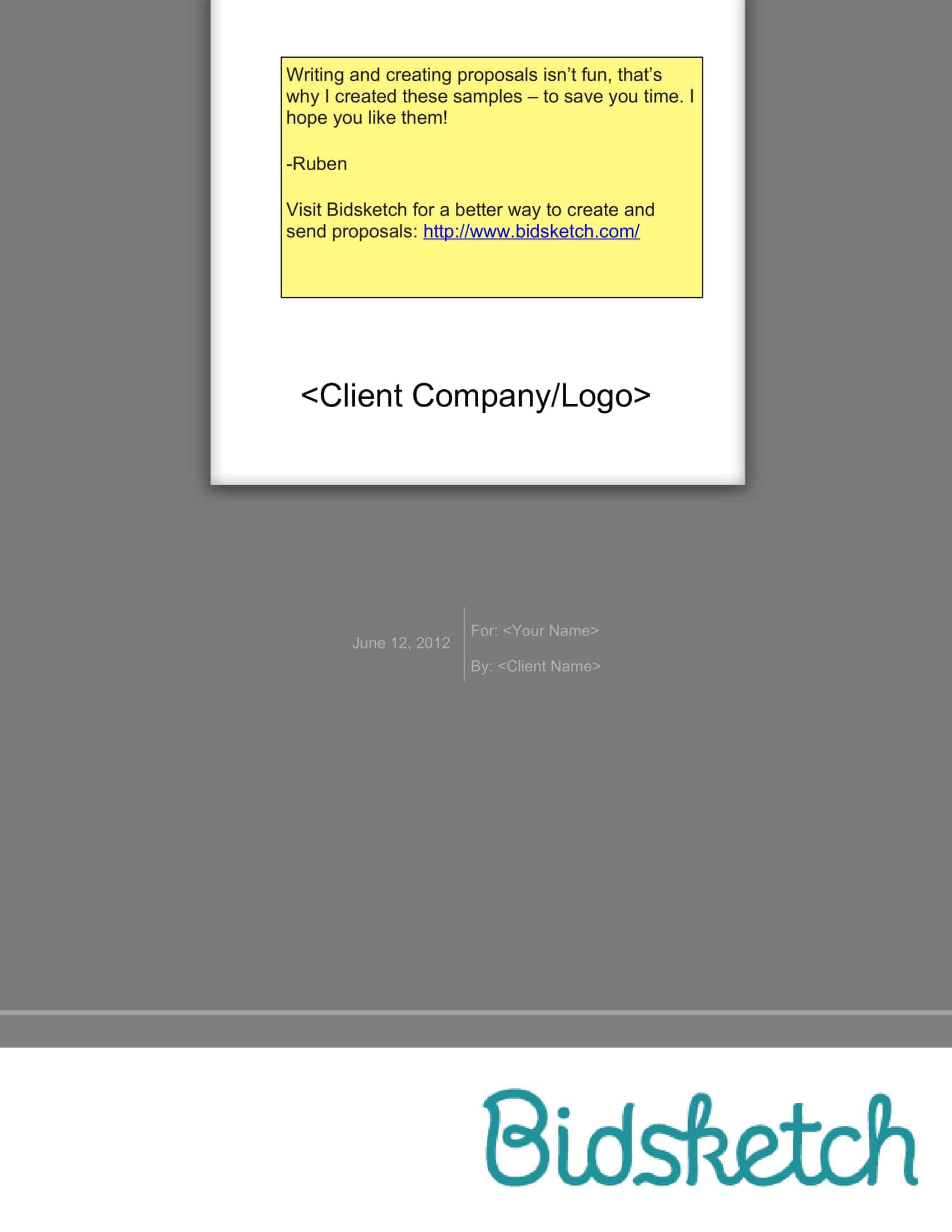





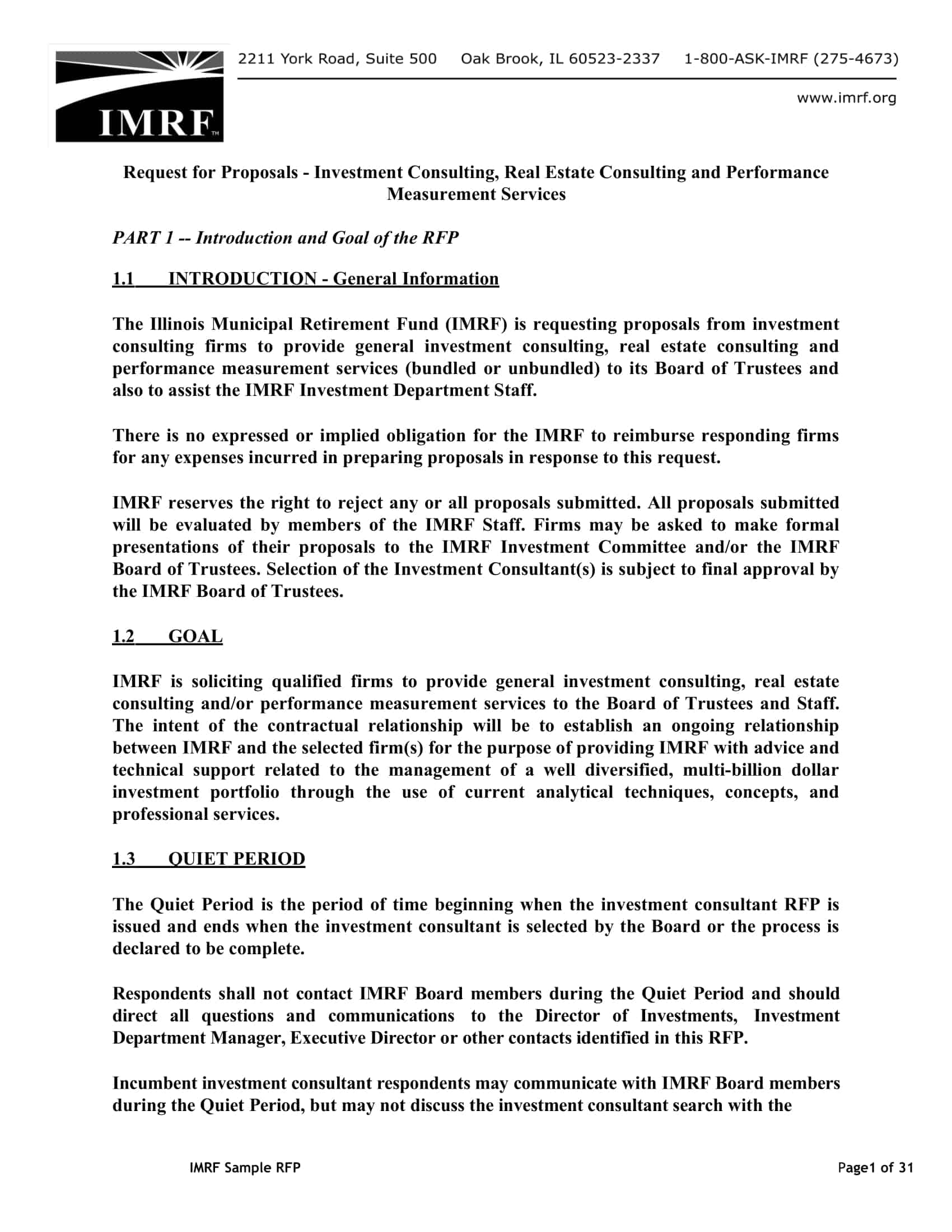

![Free Printable Roommate Agreement Templates [Word, PDF] 1 Roommate Agreement](https://www.typecalendar.com/wp-content/uploads/2023/06/Roommate-Agreement-150x150.jpg)
![Free Printable Credit Card Authorization Form Templates [PDF, Word, Excel] 2 Credit Card Authorization Form](https://www.typecalendar.com/wp-content/uploads/2023/06/Credit-Card-Authorization-Form-150x150.jpg)
![Free Printable Stock Ledger Templates [Excel,PDF, Word] 3 Stock Ledger](https://www.typecalendar.com/wp-content/uploads/2023/08/Stock-Ledger-150x150.jpg)
